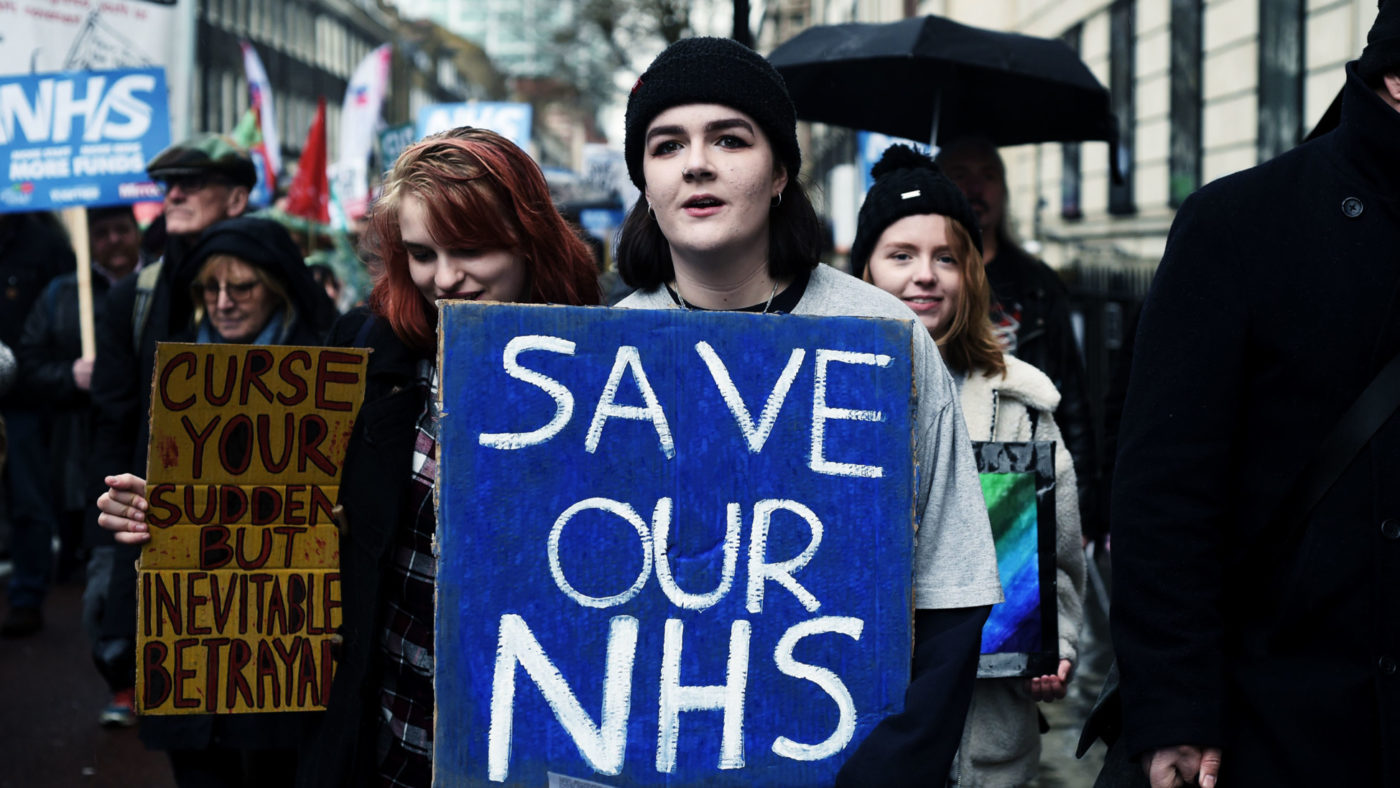When Barack Obama overhauled the American healthcare system, the backlash was, to most Brits, impossible to understand. Limited reforms to a labyrinthine, expensive and unfair system were met with a histrionic opposition, including the absurd spectre of ‘death panels’.
How strange, we thought, to put such fears ahead of the health of the American people. How absurd to let ideology and scaremongering come before people’s lives!
But today in Britain, we are increasingly guilty of the same category of mistake. The emotion the letters N, H and S conjure up, and the paranoia which greets anyone who dares meddle with the system, have become a deadly obstacle to badly needed reform.
Poll after poll reveals that nothing makes us prouder to be British than the NHS. Not the Royal Family, or having fought the Nazis, or abolished the slave trade. We cherish it so deeply that it can do little wrong in our eyes. And so the opprobrium that met Donald Trump’s tweet on British healthcare this week was hardly a surprise.
The US President, presumably prompted by something he had seen on cable news, criticised Democrats for “pushing for Universal HealthCare while thousands of people are marching in the UK” because the NHS “is broke and not working.”
Theresa May responded by expressing her pride in the NHS. Jeremy Hunt, the Health Secretary, did the same. Jeremy Corbyn tweeted: “Wrong. People were marching because we love our NHS and hate what the Tories are doing to it. Healthcare is a human right.”
The Labour leader was of course right to point out that last weekend’s protest was not exactly a march against universal healthcare. But Trump’s assessment of the NHS’s problems was actually fairly close to the mark. The system needs more money, yes – but also a serious structural rethink.
An article in the Wall Street Journal this week assessed our system’s current woes with rather less sentimentality than would be de rigueur for a British observer: “The NHS is in the middle of its annual winter crisis – wherein central planners forget which season follows spring, summer and autumn and must reschedule surgeries and leave the ill in hospital hallways because the health service hasn’t prepared for its busiest time.”
It isn’t just the annual flu-induced pinch. The UK ranks 20th out of 24 developed countries for cancer survival rates. It was ranked 19th out of 31 European countries for stroke deaths in 2015. There are dozens of similar numbers that all point to one unavoidable conclusion: the NHS just isn’t the envy of the world so many think it to be.
We spend less than many comparable countries on our healthcare, but not because our system is wonderfully efficient. In fact, as spending on the NHS has risen, productivity has decreased.
According to the Office for Budget Responsibility’s latest Fiscal Sustainability Report, health spending will have to rise from 6.9 per cent of GDP to 12.6 per cent between 2021 and 2067. As the WSJ points out, “much of that will be wasted in an unreformed NHS”. Its conclusion? That if the NHS is indeed the closest thing the English have to a religion, we need a Martin Luther.
But what would a reformation of the NHS actually look like? All too often, healthcare policy is presented as a binary choice between the British and American systems. Yet there are plenty of lessons to learn from our European neighbours, many of whom manage to offer a universal health system that is, whisper it, better than the NHS.
Part of the answer lies in a Royal Commission, which would depoliticise this most sensitive of subjects and take a 20/20 look at what the health system should do differently.
Of course, you can only depoliticise the NHS so much. Whatever changes to the NHS are proposed will doubtless be met by a British equivalent of the Tea Party, putting ideology and scaremongering ahead of the health of the British people.
Debates about the NHS will always be emotionally charged. But we should at least make sure they’re honest.
This article is taken from CapX’s Weekly Briefing email. Sign up here.


